How to Search for Certain Words on a Page
These Are the 10 Most Searched New "Words," According to Dictionary.com
You might be scratching your head about what "smize" is, but you're definitely not the only one. Here, your modern vocabulary lesson.
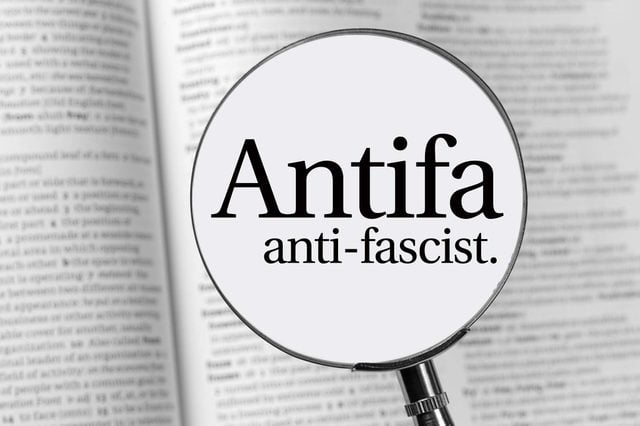 Tatiana Ayazo /RD.com, Shutterstock
Tatiana Ayazo /RD.com, Shutterstock
Antifa
An ant hill? A form of the mafia? Nope. As Dictionary.com's lexicographer Jane Solomon explains, "Most of these terms originate or are popularized by current events and pop culture. This current list of most searched for new words highlights recent trends in politics, music, and more." That's true of "antifa" the most searched word in the month of August, after the deadly white nationalist march in Charlottesville, Virginia. It's a shortened version of "anti-fascist." It's not listed on their site—yet anyway—but an anti-fascist is someone who doesn't agree with a dictatorial personality or extreme right-wing views. You won't always agree with everyone's political views, here's how to win an argument with someone who is always "right".
 Tatiana Ayazo /RD.com, Shutterstock
Tatiana Ayazo /RD.com, Shutterstock
Covfefe
The most looked up query of all, according to Solomon's research? The one spurred by President Donald Trump's tweet. It's a mysterious string of letters, that's sadly, still undefined—by the president, by Dictionary.com, by anyone. Think you have spelling skills? See if you can spot these common errors.
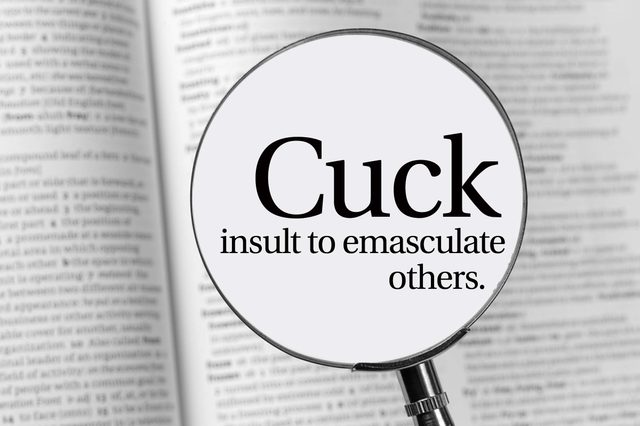 Tatiana Ayazo /RD.com, Shutterstock
Tatiana Ayazo /RD.com, Shutterstock
Cuck
It seems like 2017 was the year of abbreviations, as Solomon said the most looked up word in the month of April was "cuck," a shortened version of "cuckold." Solomon explains this word is usually meant as an insult to emasculate others. As officially defined though, it means "the husband of an adulteress" with a negative connotation. Need a laugh? Check out this collection of epic insults.
 Tatiana Ayazo /RD.com, Shutterstock
Tatiana Ayazo /RD.com, Shutterstock
Despacito
Unless you don't turn on the radio, ever, you're likely singing along to this song by Luis Fonsi and Justin Bieber already. Released in January and remixed in April, it held steady at the top of many national and international lists for months. Solomon says instead of translating Spanish to English, many users find the definition right from Dictionary.com. If you're still not sure? It means "slowly." (Yep: go look up the lyrics now!) Find out why some songs get hopelessly stuck in your head.
 Tatiana Ayazo /RD.com, Shutterstock
Tatiana Ayazo /RD.com, Shutterstock
Fidget spinner
If you're a parent—or a kid at heart—you probably have one (or five) of these laying around. Solomon says these simple toys rose to fame in 2017, becoming so popular that many schools had to ban students from using them in class. This is likely why it makes sense that folks flocked to Dictionary.com to figure out what this bad boy is. Check out a clever use for all those fidget spinners.
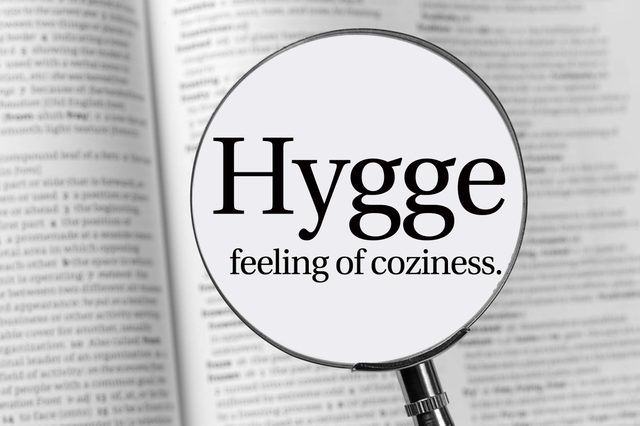 Tatiana Ayazo /RD.com, Shutterstock
Tatiana Ayazo /RD.com, Shutterstock
Hygge
You probably know already that you should seek this feeling, but do you actually know what it is? Nope—and there are definitely others who feel the same way. As the most looked up word in January, Solomon explains this adjective derives from Danish origin and doesn't translate easily into English. Nonetheless, though, many brands have used it, as it's meant to convey a feeling of "coziness." Here's how to bring more hygge into your home.
 Tatiana Ayazo /RD.com, Shutterstock
Tatiana Ayazo /RD.com, Shutterstock
Smize
Even though it's been many years since supermodel and entrepreneur Tyra Banks suggested you "smize"—or smile with your eyes—Solomon says this word shot to the top of the Dictionary.com search engines in July. Maybe folks were trying to figure out how to look better in vacation photos?
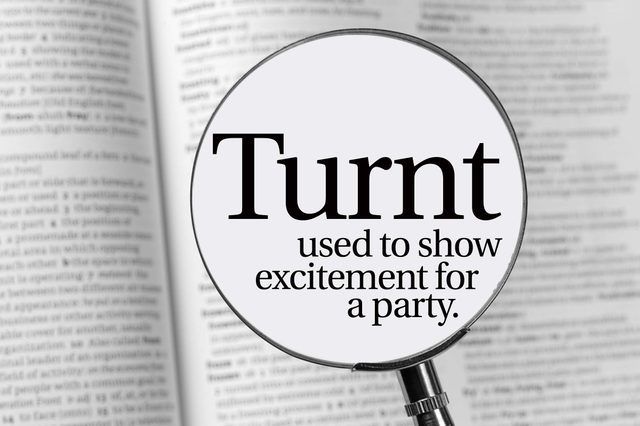 Tatiana Ayazo /RD.com, Shutterstock
Tatiana Ayazo /RD.com, Shutterstock
Turnt
Solomon endearingly referenced this most searched new word as a "playful misspelling of the word 'turned.'" In popular culture—and many hip-hop songs—"turnt" is used to show excitement for a party or for an event. And most of the time, it also means there will be plenty of alcohol involved, too.
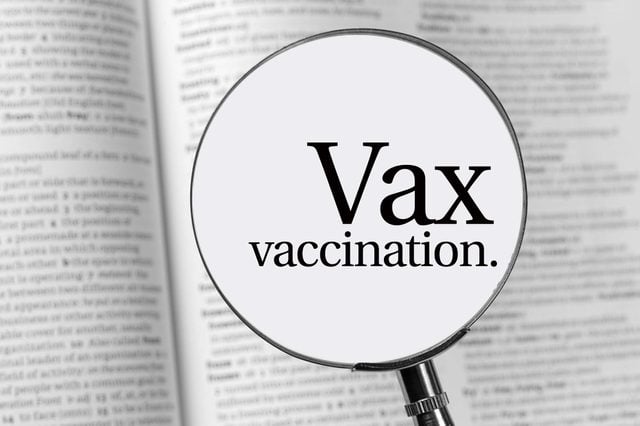 Tatiana Ayazo /RD.com, Shutterstock
Tatiana Ayazo /RD.com, Shutterstock
Vax
Solomon explains "vax" is another shortened phrase for vaccination. Most of the time, you might read this in the comments section of Facebook, where it's often prefixed with "pro" or "anti," meaning you're either for or against vaccinating yourself and/or your children. Spoiler alert: Vaccines don't cause autism and nine other vaccination myths you can safely ignore.
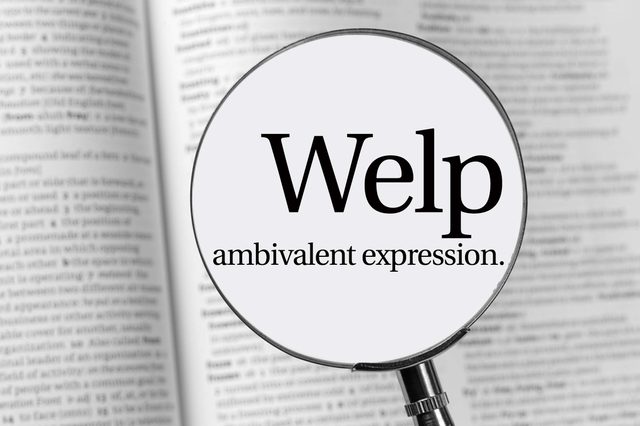 Tatiana Ayazo /RD.com, Shutterstock
Tatiana Ayazo /RD.com, Shutterstock
Welp
Welp, that's all folks! You've probably uttered this out loud, but have you searched for it to see where it derives from? Solomon explains "welp" is the verbal equivalent of a shrug or an ambivalent or exasperated expression. Though it was popular this year, she adds that it dates back to at least the 1940s where it was discussed in the Journal of American Speech.
Originally Published: November 17, 2017
Sign up for articles sent right to your inbox
Enjoy the best stories, advice & jokes delivered right to your inbox!

Subscribe & SAVE Save Up To 84%!
How to Search for Certain Words on a Page
Source: https://www.rd.com/list/most-searched-new-words/